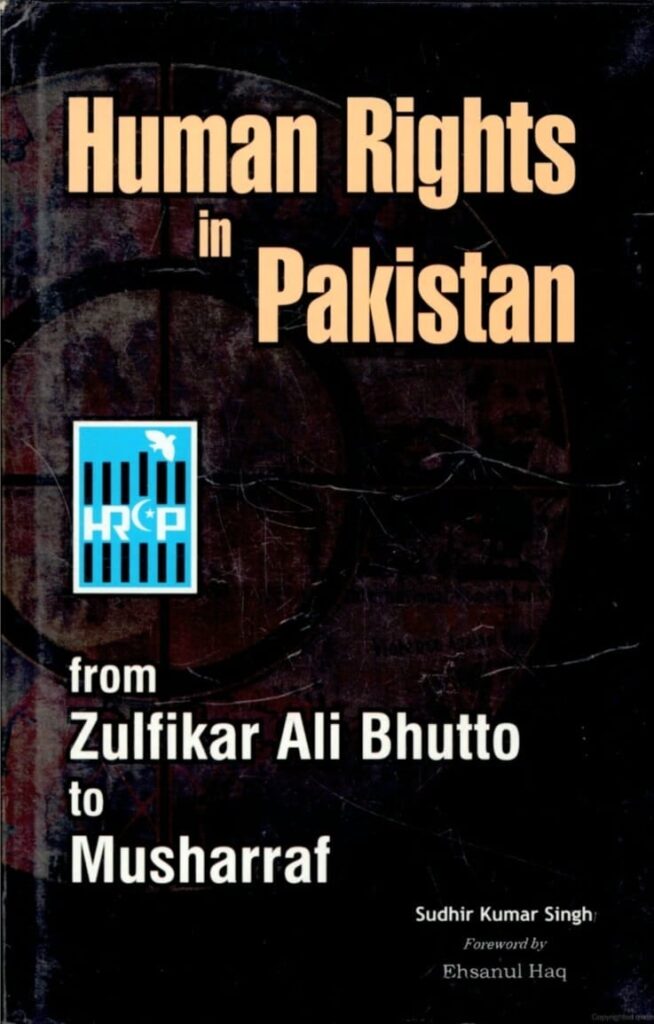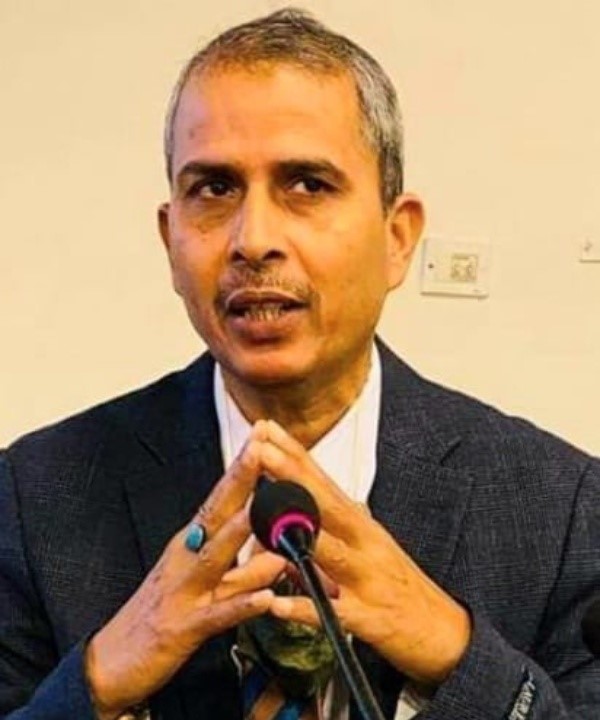Dr. Sudhir Kumar Singh, an esteemed Associate Professor in the Department of Political Science at Dyal Singh College, University of Delhi, is a luminary in the field of academia and human rights advocacy. His academic journey culminated in a Ph.D. from the prestigious South Asian Division, School of International Studies, Jawaharlal Nehru University, laying the foundation for his illustrious career.
With an impressive track record of over two decades in teaching and research, Dr. Singh’s influence extends beyond the confines of his college. He actively engages with numerous educational institutions, serving in various capacities such as a Member of the NAAC peer team, Executive Council Member at Goa University, and Society Member of the Indian Institute of Mass Communication under the Ministry of Information & Broadcasting, Govt. of India. Additionally, his involvement in university boards for syllabus revision and governmental committees underscores his commitment to shaping academic discourse and policy frameworks.
Dr. Singh’s scholarly pursuits cover a diverse spectrum, ranging from philosophy to India’s foreign policy and contemporary issues such as inclusion, governance, and human rights. Notably, his seminal work “Human Rights in Pakistan: From Zulfikar Ali Bhutto to Musharraf” stands as a testament to his rigorous research and analytical acumen, providing a comprehensive examination of human rights dynamics under different regimes.
In a recent interaction with The Interview World, Dr. Singh elucidates the intricate interplay of power struggles among various stakeholders in shaping the global human rights landscape, offering invaluable insights derived from his wealth of expertise and experience.
Q: What impacts will the Taliban’s governance have on the human rights situation in Afghanistan?
A: Since the Soviet intervention in December 1979, Afghanistan has been embroiled in a persistent state of turmoil. Over the decades, spanning from 1979 to the present, the nation has endured a succession of tumultuous years, marked by upheaval and instability. Within this environment, the fabric of Afghan society has been deeply affected, with a significant portion of families now being headed by widows or individuals coping with disabilities. Tragically, poverty grips the lives of around 70% of the population, casting a shadow of hardship and deprivation over the land.
The situation took a further downturn with the Taliban’s seizure of power in August 2021, exacerbating the already dire circumstances faced by Afghans. This abrupt shift in governance brought about a regression in the rights and freedoms that women had gradually gained over the past two decades. Previously enjoying a degree of autonomy, women now find themselves subjected to the harsh and draconian rule of the Taliban.
Despite assurances of reform and progress, the Taliban’s actions during their previous rule, from 1996 to 2001, offer a sobering reminder of their entrenched mindset and authoritarian tendencies. This medieval outlook, which runs counter to the aspirations of many Afghans, is poised to be imposed once again through coercion and violence.
Despite significant strides made in the past two decades, Afghanistan finds itself at a critical juncture where the forces of progress clash with the specter of regression embodied by the Taliban.
Q: How would you characterize the current state of human rights in Pakistan based on your extensive research, and what key insights can you provide to shed light on this matter for our readers?
A: Pakistan, despite being 77 years old, still grapples with identity. While Islam is projected as its defining trait, it’s an artificial construct. The Pakistan army, having seized power, violates fundamental human rights to sustain its dominance. Suppression of dissenting voices is deemed essential. Consequently, a myriad of conflicts prevails, eroding Pakistan’s civilized image. These conflicts range from political strife to ethnic tensions, hindering national progress. The struggle for identity persists, with diverse cultural, religious, and political forces vying for dominance. Pakistan stands at a crossroads, seeking to reconcile its past with aspirations for a more inclusive and progressive future.
Q: How is the paradigm-shifting within majoritarian democratic countries worldwide?
A: In a democracy, governance hinges on the majority’s mandate. Nevertheless, inclusivity must be a cornerstone in governmental decision-making. When the needs and desires of minority groups are sidelined, democratic principles are compromised, eroding the essence of an ideal democratic system. Sadly, this phenomenon is observable in several democratic nations, where the voices of marginalized communities are drowned out by the dominant discourse. Upholding democratic values necessitates not just the empowerment of the majority but also the protection and consideration of minority interests. Failure to do so undermines the very foundation upon which democracy stands, fracturing societal cohesion and trust in governance.
Q: How are emerging global power struggles impacting the efficacy of international bodies?
A: The prevailing global power architecture starkly reveals the erosion of international bodies’ effectiveness. Institutions like the United Nations, originally vested with significant moral authority, now grapple with diminishing influence. This shift is evident as powerful nations openly flout established norms of decency, consolidating their dominance within the international arena. Reflecting on the League of Nations’ post-World War I failures serves as a poignant reminder of the catastrophic consequences of institutional breakdown. The world bore witness to unprecedented death and destruction resulting from these shortcomings.
Preventing a recurrence of such failures is paramount to avoid plunging into further global turmoil. It necessitates collective vigilance from all stakeholders to foster a justice-centered international system. At this critical juncture, prioritizing humanity’s safety and sustainability emerges as an urgent imperative. Only through concerted efforts to uphold ethical standards and reinforce the structures of global governance can we navigate the complexities of the modern world and secure a better future for all.
Q: What is the relationship between human rights and the economic well-being of individuals within a country?
A: The economic climate holds paramount importance in safeguarding human rights within any given nation. A thriving economy is essential to meet the fundamental aspirations of its citizens. However, numerous countries across Asia and Africa find themselves grappling with inadequate resources, which impede their capacity to allocate sufficient funds towards crucial sectors such as healthcare and education.
In stark contrast, nations in Europe and America are experiencing a surge in economic prosperity that transcends mere survival, allowing for the fulfillment of basic needs among their populations. It is imperative to emphasize that robust economic conditions are a prerequisite for upholding human rights standards. At a global level, there exists a pressing necessity for the establishment of a justice-oriented economic framework to ensure the effective protection of human rights for all individuals, regardless of geographical location or socio-economic status. This paradigm shift is crucial for fostering a more equitable and inclusive world.



